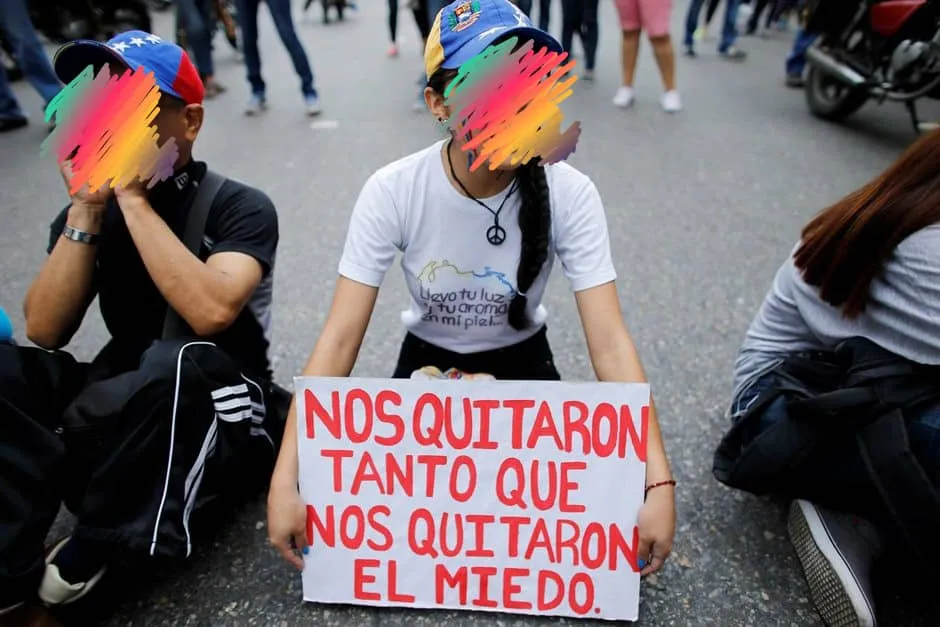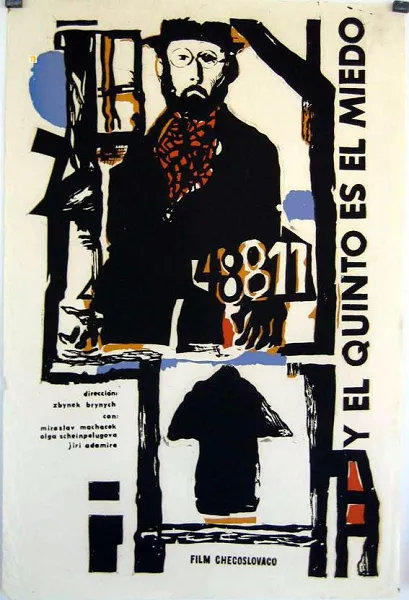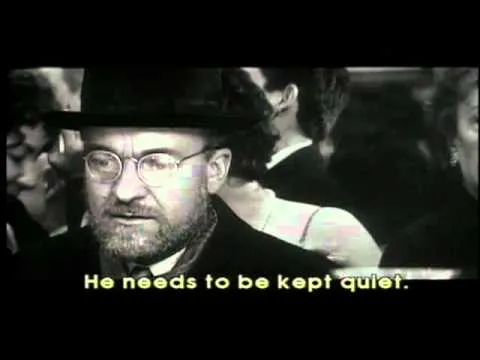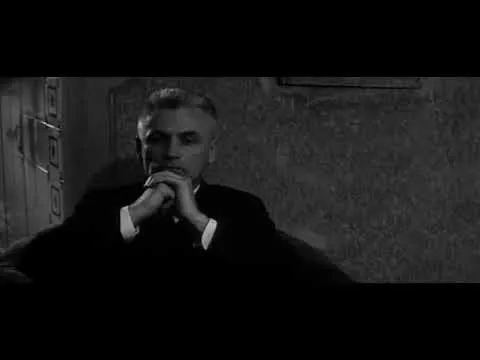Aunque no puedo solicitar permiso a su autor (ya fallecido), tomo el título de un filme checoslovaco de 1965 (entonces existía ese país bajo la égida de la URSS, que luego desapareció —en 1993— y dio lugar a dos países diferentes: Chequia y Eslovaquia), época de un cine muy crítico (censurado y/o perseguido, por supuesto) en países del orbe socialista. Quiero hablar someramente sobre este asunto tan agudo: el miedo. Por supuesto, a propósito de lo vivido en mi país (Venezuela).

Vi ese filme del cineasta, entonces checoslovaco, varios años después de su realización, quizás hacia finales de la década de los 70 o comienzos de los 80, en uno de los cineclubes que tuvimos la suerte de disfrutar en Cumaná. La historia del filme y el modo de presentarla me impresionó, y su título quedó en mí. Alude, obviamente, a la imagen del libro del Apocalipsis bíblico, donde se nos presentan, con el talante escatológico y profético propio de este libro del Nuevo Testamento, la imagen alegórica de cuatro jinetes, que serían los mensajeros del Juicio Final (ver aquí). Esos jinetes representarían la peste, el hambre, la hambruna y la muerte.

Podría haber un quinto jinete, según lúcida propuesta de este filme —a través de su director y guionistas—, igualmente negativo y destructivo: el miedo, como ya he indicado. El filme nos presenta el drama individual y colectivo vivido en una sociedad constreñida a la penuria, la angustia y el silencio impuesto, sostenidos mediante la estrategia del miedo, expresada en el acoso permanente de las fuerzas del régimen, que promueve la delación entre los habitantes.
Un médico, venido a menos, se ve en la necesidad solidaria de atender a un perseguido, y será delatado por un vecino. Terminará sacrificándose, y los vecinos acobardados por la vergüenza y el pavor frente al poder. Es un filme, pues, poco optimista, realista, pero, de ese modo, también proactivo, pues sabemos que ese país salió de ese oprobioso régimen, pese a lo sufrido.
Lamentablemente, no he conseguido forma de acceder al filme completo (si alguien lee este post y alcanza a tener acceso seguro al filme, le agradezco que me lo provea). Pero puedo dejarles algunos fragmentos de él.


Referencias | References.
https://elgabinetedeldoctormabuse.com/2021/10/05/y-el-quinto-es-el-miedo-a-paty-jezdec-je-strach-1965-de-zbynek-brynych/
https://www.filmaffinity.com/ve/film241990.html
https://en.wikipedia.org/wiki/Four_Horsemen_of_the_Apocalypse
![Click here to read in english]
And the fifth horseman is fear (to think of Venezuela).
Although I cannot ask permission from its author (now deceased), I take the title from a Czechoslovak film from 1965 (this country existed at that time under the aegis of the USSR, which later disappeared – in 1993 – and gave rise to two different countries: Czechia and Slovakia), a time of very critical cinema (censored and/or persecuted, of course) in countries of the socialist world. I want to speak briefly about this very acute issue: fear. Of course, in relation to what I experienced in my country (Venezuela).
I saw this film by the then Czechoslovak filmmaker several years after it was made, perhaps towards the end of the 70s or beginning of the 80s, in one of the film clubs that we were lucky enough to enjoy in Cumaná. The story of the film and the way of presenting it impressed me, and its title stayed with me. It alludes, obviously, to the image of the biblical book of the Apocalypse, where we are presented, with the eschatological and prophetic mood typical of this book of the New Testament, with the allegorical image of four horsemen, who would be the messengers of the Final Judgement (see here). These horsemen would represent plague, hunger, famine and death.
There could be a fifth horseman, according to the lucid proposal of this film – through its director and scriptwriters – equally negative and destructive: fear, as I have already indicated. The film presents us with the individual and collective drama experienced in a society constrained to hardship, anguish and imposed silence, sustained by the strategy of fear, expressed in the permanent harassment of the forces of the regime, which promotes denunciation among the inhabitants.
A doctor who has fallen on hard times finds himself in need of caring for a persecuted man, and is betrayed by a neighbour. He ends up sacrificing himself, and the neighbours are cowed by shame and fear in the face of power. It is a film, therefore, not very optimistic, realistic, but, in this way, also proactive, because we know that this country emerged from this disgraceful regime, despite what it suffered.
Unfortunately, I have not been able to access the full film (if anyone reads this post and does, I would be grateful if you could provide it to me). But I can leave you some fragments of it.





